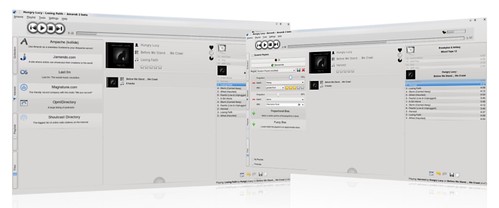Finally back at home. Less tired after sleeping in my own bed again. Missing everyone. Caught up on stuff. Laundry still piling up 😉
Akademy was great. Very big THANK YOU to Wendy, Bart and their team. You did an amazing job.
Akademy was quite productive. Talked to lots of people about lots of stuff. Wait for some interesting things to happen in the next weeks and months.
I took the time to talk to some of our Google Summer of Code students about their experience. I wanted to find out where we as a community are doing very well and what we can improve in their opinion. Of course it wouldn’t be of much use if only I knew this so let me share it with you:
- Everyone seemed to agree that KDE is a great community and that they felt welcome in our community. Akademy was seen as a great opportunity for the students to get to know people and it seriously helps in turning some of the students into contributors outside of GSoC. (Note to self: Find out how many of them are still committing code in 6 months.)
- Documentation!!! The Amarok team seems to be doing a bad job here :(Â (Not really sure about the rest of KDE.) I need to find ways to improve this. Suggestions welcome.
- The Big Picture: This seems to be missing. Mentors should try to give an overview of the code and community and how it fits together at the beginning. Some of the students felt lost at the beginning and it took them a lot of time to get used to everything. For Amarok I created a wiki page with all the important links to websites and mailing lists for the students. Unfortunately the code overview part of it did not get finished.
- Blogs: The Amarok students were encouraged to blog about their work every week and post it on Planet Amarok and Planet KDE. Same goes for some of the students that worked on other parts of KDE. Everyone seemed to agree that this was a good thing. The feedback they got was encouraging and helpful. They felt pushed to produce something worth blogging about at the end of the week which was seen as positive and motivating. It also showed that people are interested in the work they do and that their progress is monitored.
- Branches: Working in a SVN or Git branch outside of trunk was seen as a problem. Code did not get reviewed and tested enough before it hit trunk. Those students worked too much in their own little world. Immediate testing and code review by other developers would have been preferred and a lot of problems would have been avoided. (I know there are reasons for branches but something needs to be done about this.)
- Timezones: Timezone mismatches between mentor and student made students switch their sleep/wake times by several hours. I got a few complains about this but it was always seen as a minor problem. I don’t think it is too healthy though. So maybe this should be considered next year when matching students and mentors.
- Gurus: Every single student was very thankful for having very knowlageable people in our community they could ask when reading manuals didn’t help. Even if their questions from time to time weren’t the most clever ones they got help. You rock!
- Mentor being away: Some mentors left for a week or more on very short notice. This should be avoided or a backup mentor in place.
- Students liked that they were mostly free to do what they want, i.e. solve problems the way they want and work on their own schedule.
- Mentors in general seemed to have done a good job. You rock!
Thanks everyone who had a chat with me about their GSoC. If I didn’t find the time to talk to you at Akademy or if you were not there feel free to ping me on IRC. I will make sure your feedback gets heard.
I hope a lot of our students stay with KDE after GSoC. You have done an amazing job. Rock on!
PS: Thanks to everyone who signed my Moleskine at the social event. I considered doing nasty stuff to Sebr when he took it away from me but I have to reconsider this now since it is the BEST THING EVAR 😛 and will be reminding me of Akademy for years to come.
*hug*



